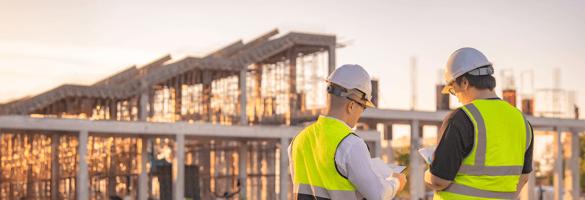Construction Law - A Guide To Navigating Your Contract
Building a property can be exciting and daunting – it can be a dream to see a building emerge from an empty plot of land. But, It can also be a nightmare to be paying for that building only to have it delayed, over budget, poorly built, or not built at all. These stories have permitted the news cycle lately as there are a lot of developers and builders who are falling short of buyer expectations. So how can you protect yourself? Here are some things to look into before signing on the dotted line to avoid getting into trouble. Read on for our article in Construction Law - a guide to navigating your contract.
Engage a reputable solicitor you can trust before you sign anything
Construction contracts can be written in a way that might result in a building that doesn’t match your expectations.
So the most important decision you can make when you're building is not the type of oven, or showerhead, or bathroom fittings – it’s to have a construction law specialist review the contract before you sign it. They know what to look for, can identify hidden traps, and ensure there are protections in place for you.
Do the research!
First and foremost, it’s critical to look into the company you’re engaging, and to understand the quality of their workmanship. This involves quite a bit of legwork and preparation, so be prepared to put in the time and effort – it will be worth in the long run.
Solid research means you’ll have a better idea of what you’re getting yourself into, what the outcome is likely to be, any feedback by prior clients (including problems and complaints).
Go online. You can do this at any time of the day or night. Look up the company qualifications, work history, reviews – what are other customers saying about the work? Look at the number of reviews.
What you’re looking for is reliability, quality of work, ability to mange costs, and managing a schedule.
The NSW Department of Fair Trading suggests:
- asking people for their personal recommendations – especially if you have heard first-hand about their work
- ask people who are in the industry, particularly if you’ve used tradespeople you trust. Tradespeople build up a network of builders – and vice versa
- asking the relevant industry association for a list of names. For example, the Master Builders Association has a ‘Find a Master Builder’ tool where you can search by attributes such as location
- looking for ads on television, radio, in home buyer magazines or the local newspaper
- checking relevant online directories for 'building contractors', 'home improvements' or specific trade categories.
Other research tips:
- Look out for advertising boards on building sites in your local area.
- Check out examples of their work. Visit display homes or recently completed projects.
- Online reviews … but be circumspect. Not all reviews are by actual customers, so word of mouth from those who have used them directly will probably wield the most accurate outcome.
Know what you’ll be getting.
Check the plans, specifications, and inclusions
Be sure you have a very clear understanding of the plans and specifications set out in the building contract. Know what’s included, including standard or quality, and what’s going to cost you extra.
- Preparation – getting the land ready, particularly if there’s a slope, rock base or trees
- Outside the house – paintwork, options for colours, landscaping
- Inside the house – interior design, electrical plans, plumbing, floorings, cupboards, fittings etc. What quality do you want? Do you want to upgrade? The high end fittings you might see in a display home might not be included in your contract, so check it thoroughly and factor in the cost of any extras. And check if energy-efficient and other environmentally friendly options are on your agenda.
If you’re expecting the property to be in ‘turnkey’ – meaning it’s literally ready for you to step into, nothing more to do – you need to agree with your builder that this is what you’re paying for.
It’s also important to be aware of payment timings, so you’re prepared.
Understand the total cost of the build
As anyone who has watched Grand Designs or any other home development program knows, building costs usually (mostly!) blow out of scope.
Builders like to use words like fixed costs – meaning the builder agrees to build the property at a specified and agreed price. But there are traps that could cause costs to escalate out of proportion. Some examples are:
- Issues with soil or rock (sandstone can be a problem in Sydney) – requiring site surveys
- Removing or navigating trees, fences etc
- Drains and pipes
This might add significant dollars to your costs so it’s important to be prepared in terms of money and time (if it delays the project).
The Timeframe
Lastly, be sure of the timeframe. The other factor that’s inevitably revealed in Grand Designs etc is the project doesn’t usually run over budget – it also runs over time. So how quickly do you need the work done, and what are the impacts on you if the building works aren’t completed on schedule?
You don’t want to be homeless or out of pocket. If you’re renting during the build, you’ll have to accommodate the additional cost, assuming you’re able to stay beyond your original lease. Or if you’re planning to lease the property, what does a delay in rent mean for you?
Good legal advice would help you incentivise the builder to complete works on time by including monetary penalties for delays.
At CM Law, we are your advocates and will act for you…and you alone. We can help you save money and protect one of the most valuable investments you’ll ever make. Contact Us Today.
Follow Us On Facebook For More Great Posts Like This One.



